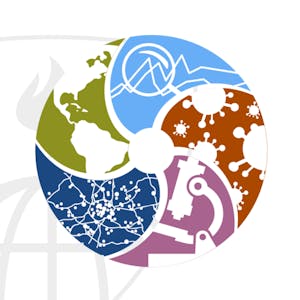This specialization from Johns Hopkins University focuses on applying epidemiologic tools in public health practice, covering a range of essential skills and knowledge that are vital for professionals in the field.
Throughout the five courses, participants will become conversant in public health history, services, governance, and workforce, and gain the expertise to calculate measures of disease burden in populations.
Certificate Available ✔
Get Started / More Info
This course covers essential epidemiologic tools, data and health indicators, surveillance systems, analysis and dissemination, and outbreak investigation, providing a comprehensive understanding of public health practice.
Essential Epidemiologic Tools for Public Health Practice introduces foundational skills and knowledge for assessing public health problems, evaluating burden, using data visualization, and applying basic mapping skills for epidemiologic decision-making.
Data and Health Indicators in Public Health Practice defines the role of the professional epidemiologist, problem-solving methodology, and the use of reliable data to calculate measures of disease burden in populations.
Surveillance Systems: The Building Blocks discusses the role of surveillance in epidemiology and public health, the use of public health surveillance reporting systems, and comparing surveillance systems using system attributes.
Surveillance Systems: Analysis, Dissemination, and Special Systems delves into analyzing and interpreting epidemiologic surveillance data, presenting data in compliance with legal reporting requirements, and applying epidemiologic surveillance principles to non-communicable chronic diseases.
Outbreaks and Epidemics explores the application of methods to weigh evidence and calculate measures, discusses outbreaks, and applies basic epidemic dynamics to the analysis of outbreaks.
This course on COVID-19 Contact Tracing provides essential knowledge on SARS-CoV-2, contact tracing, and ethical considerations. Students will gain valuable skills...
This masterclass covers the aetiology, epidemiology, and interventions for non-communicable diseases. Gain insights into colorectal cancer, cardiovascular disease,...
Major Depression in the Population: A Public Health Approach explores the application of public health principles to prevent and promote mental health, focusing...
Explore how social context influences health and shapes health disparities over the life course in this comprehensive course by the University of Michigan.